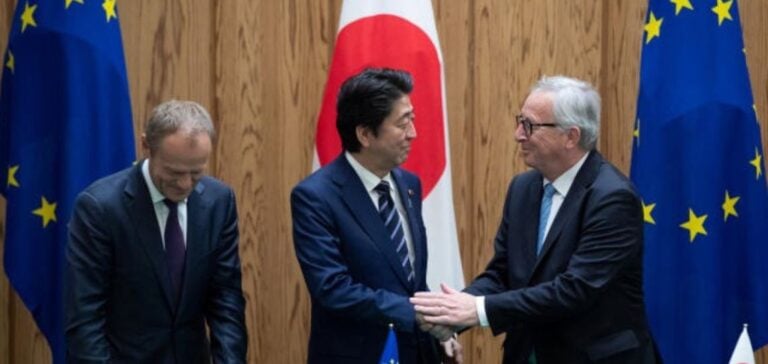Japan and the European Union recently signed an agreement to collaborate on policies to stimulate the demand and supply of clean hydrogen. This initiative is part of the two regions’ overall efforts to achieve carbon neutrality and reduce their dependence on fossil fuels. Hydrogen is seen as a promising alternative to LNG for Japan, while Europe sees it as a way to move away from Russian fossil fuels. Kadri Simson, European Commissioner for Energy, underlined the importance of this cooperation, stating that
“hydrogen will very soon become an internationally traded commodity, and close collaboration between the EU and Japan will be essential to promote renewable and low-carbon hydrogen on a global scale, and to ensure convergence of standards and regulations.”
Investments and Infrastructure
During the meeting, Ken Saito, Japan’s Minister of Economy, Trade and Industry, and Kadri Simson also chaired a Japan-EU hydrogen business forum, attended by executives from major companies such as JERA, Tokyo Gas, Mitsui and Iwatani. The forum highlighted the need for investment in infrastructure to support the production and distribution of renewable hydrogen. The European Union is aiming to produce and import 10 million tonnes of renewable hydrogen by 2030, an ambitious target that will require massive investment in infrastructure. Kadri Simson added that
“hydrogen is an important priority for European energy policy, as it will help us eliminate Russia’s last fossil fuels and, in the long term, decarbonize our industry.”
National Initiatives and Projects
In Germany, a bill was recently passed to accelerate the construction of hydrogen infrastructure, both for import and production, as part of efforts to reduce carbon emissions. This move follows Russia’s invasion of Ukraine in 2022, prompting Germany to seek alternatives to its Russian gas supplies. Japan plans to spend 3,000 billion yen ($19 billion) over the next 15 years to subsidize the production of clean hydrogen. Itochu Corp is conducting a feasibility study to establish a hydrogen and ammonia supply chain in Kitakyushu, southern Japan, one of the country’s future offshore wind hubs.
The agreement between Japan and the EU marks a significant step towards promoting hydrogen as a central pillar of both regions’ energy strategies. Clearly, international collaboration will be crucial to the successful transition to a low-carbon economy, while at the same time strengthening energy security.






















